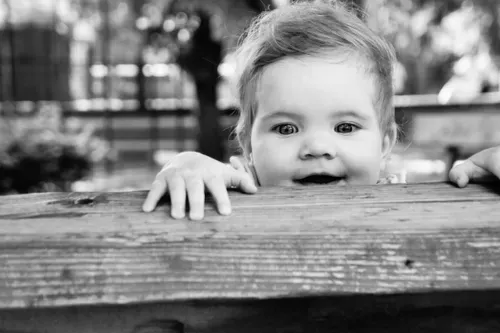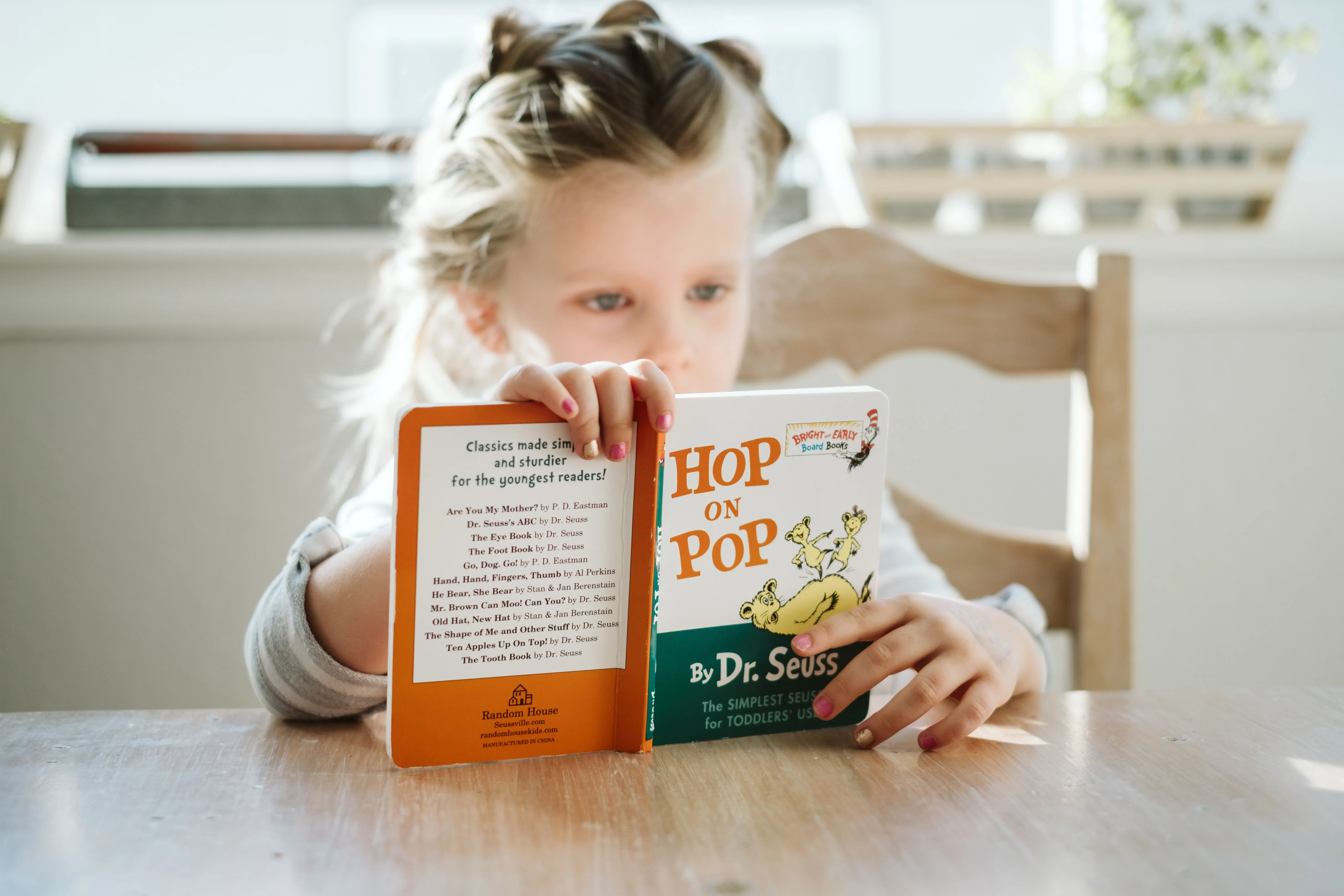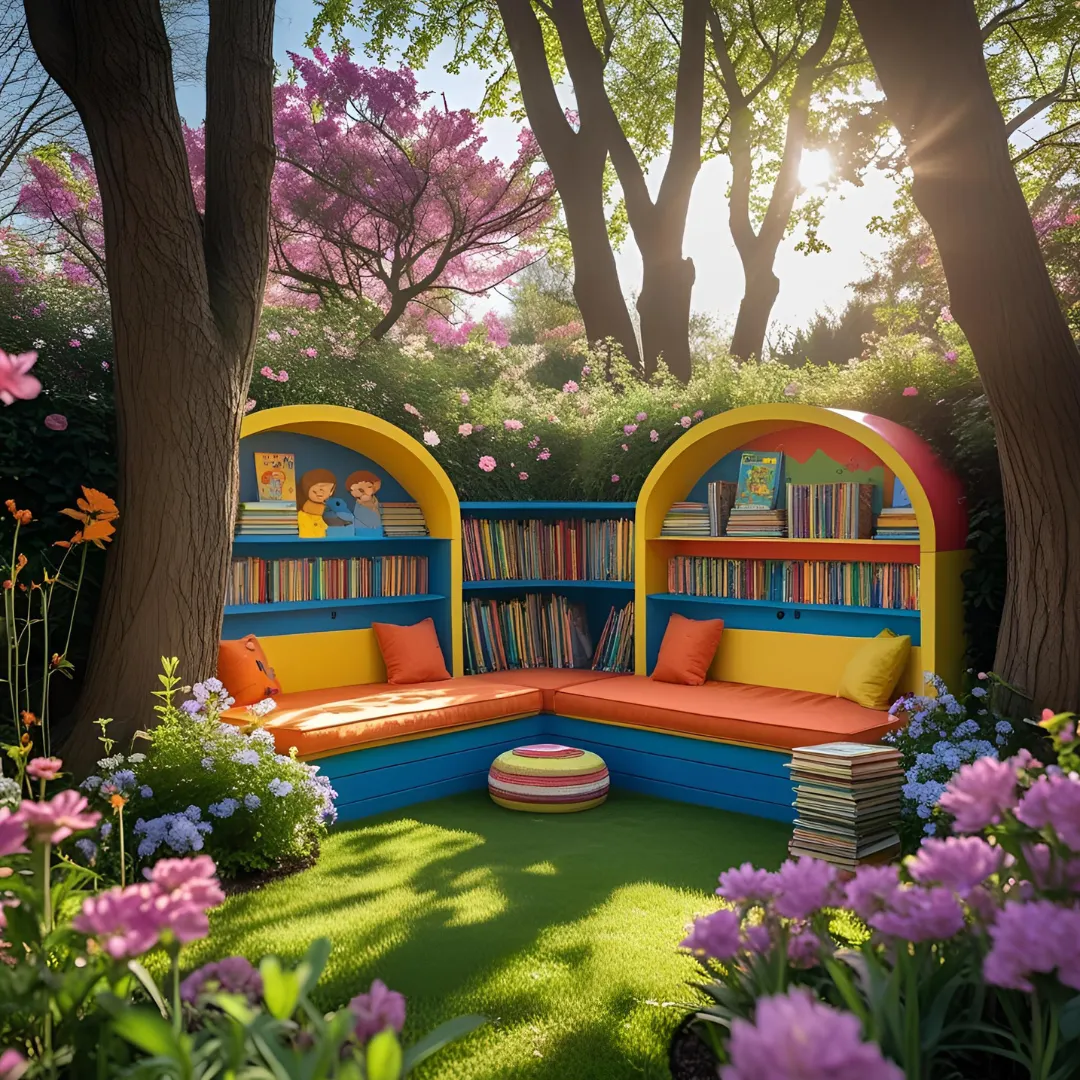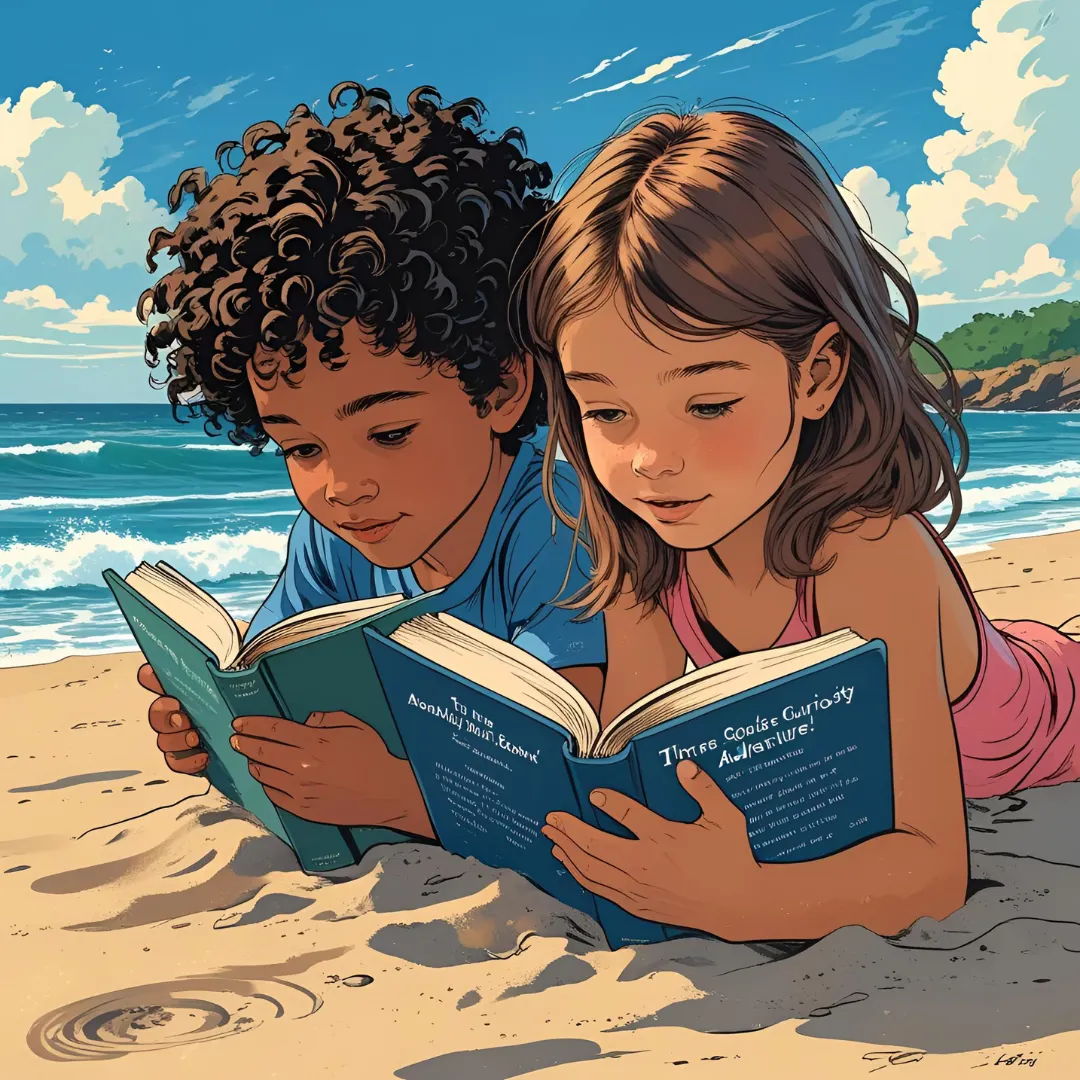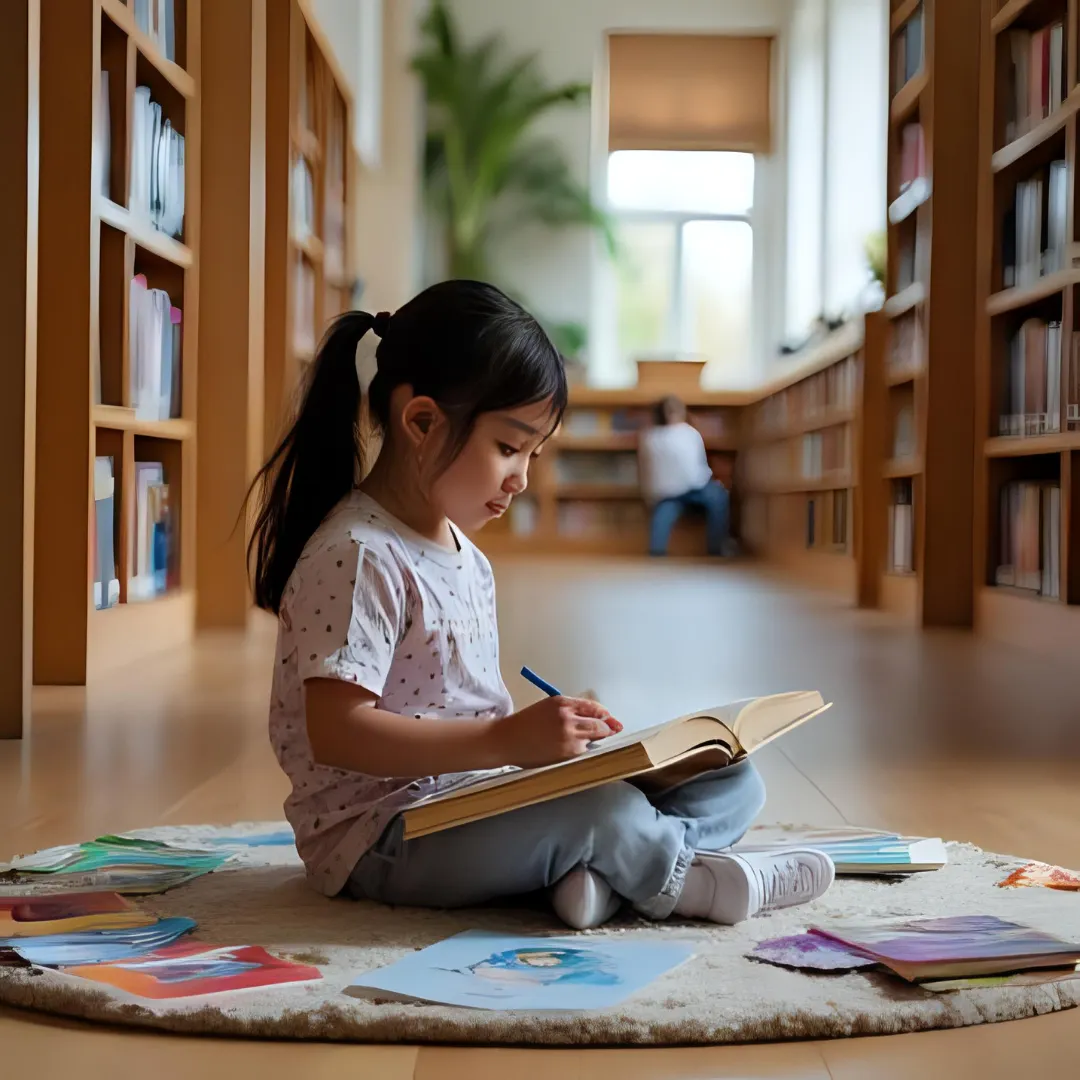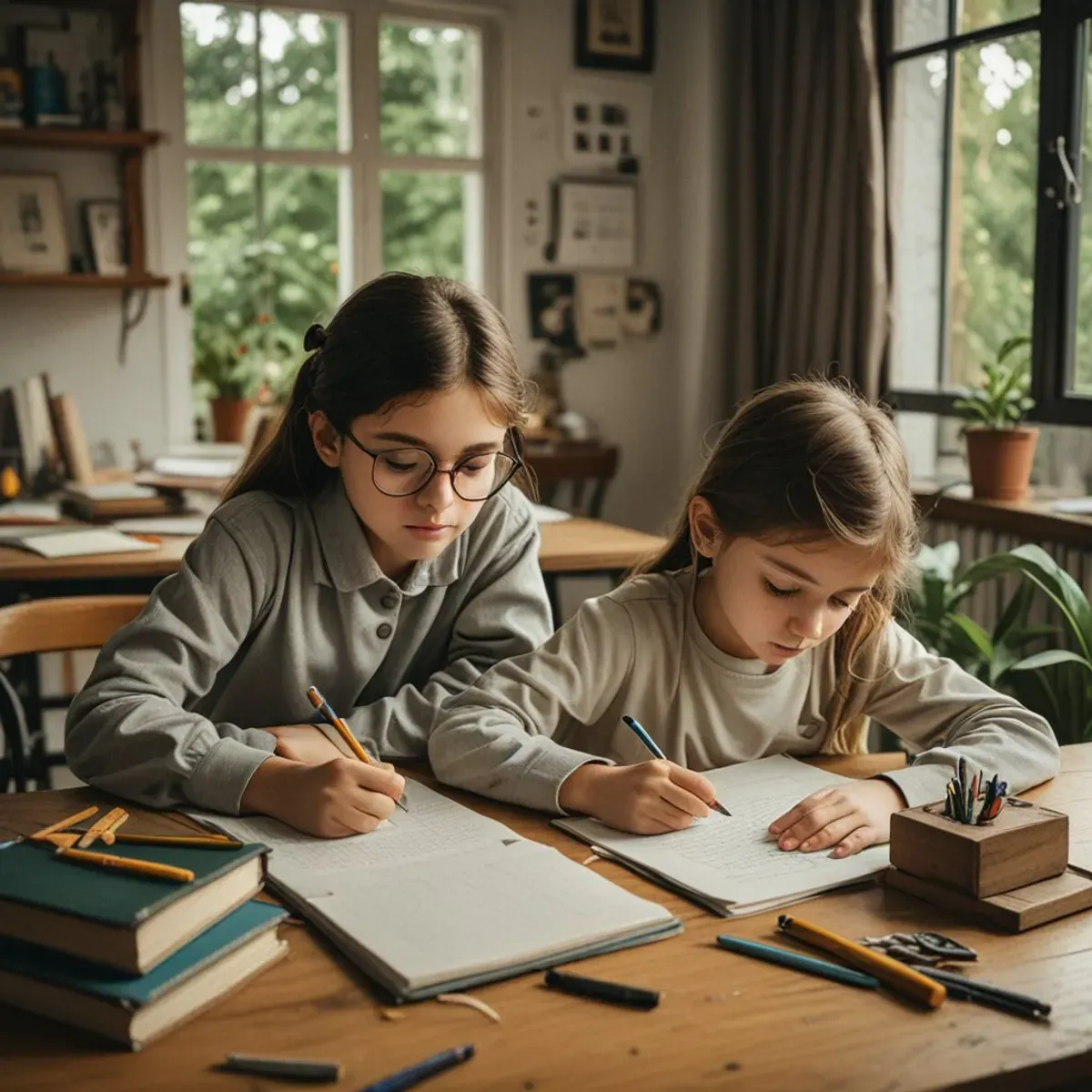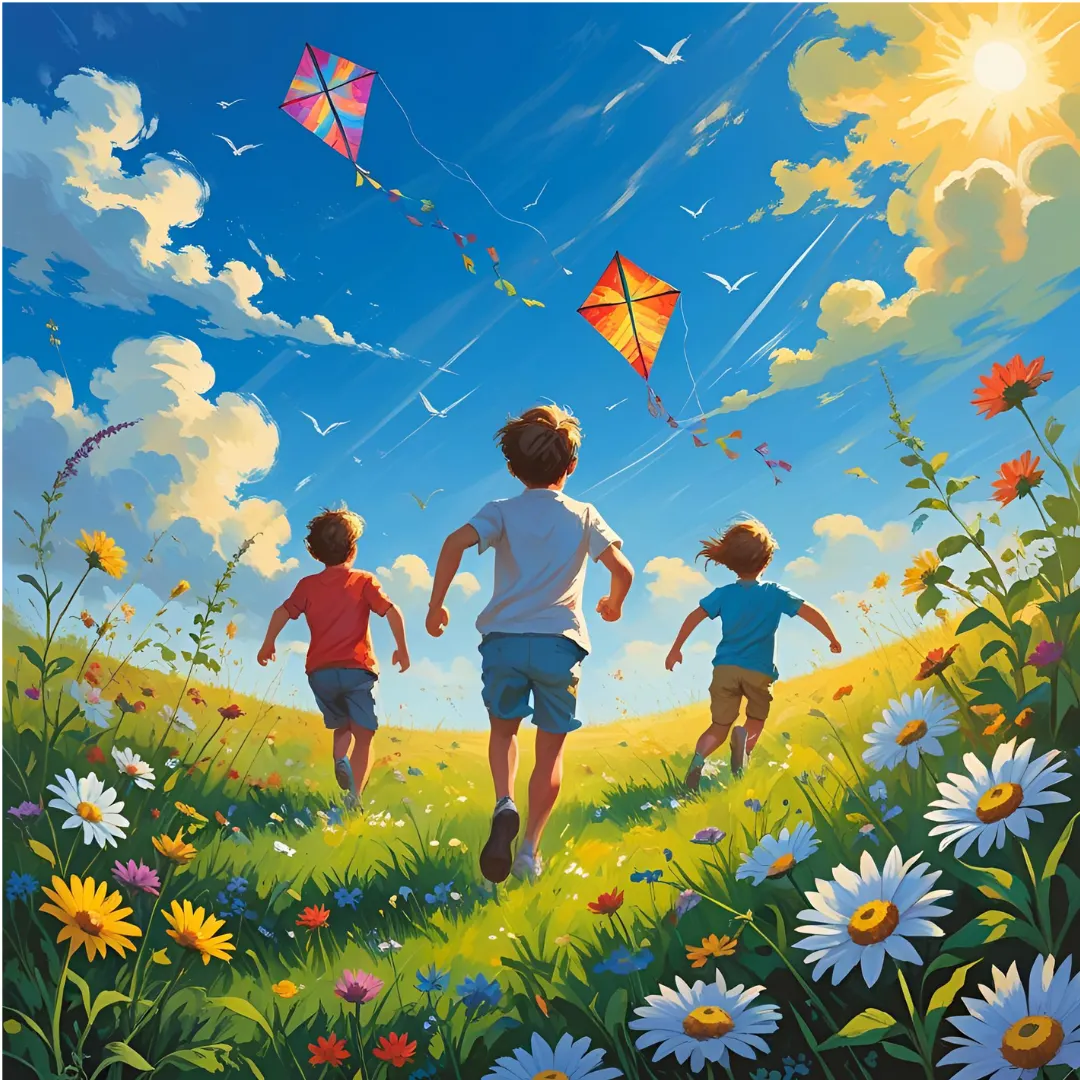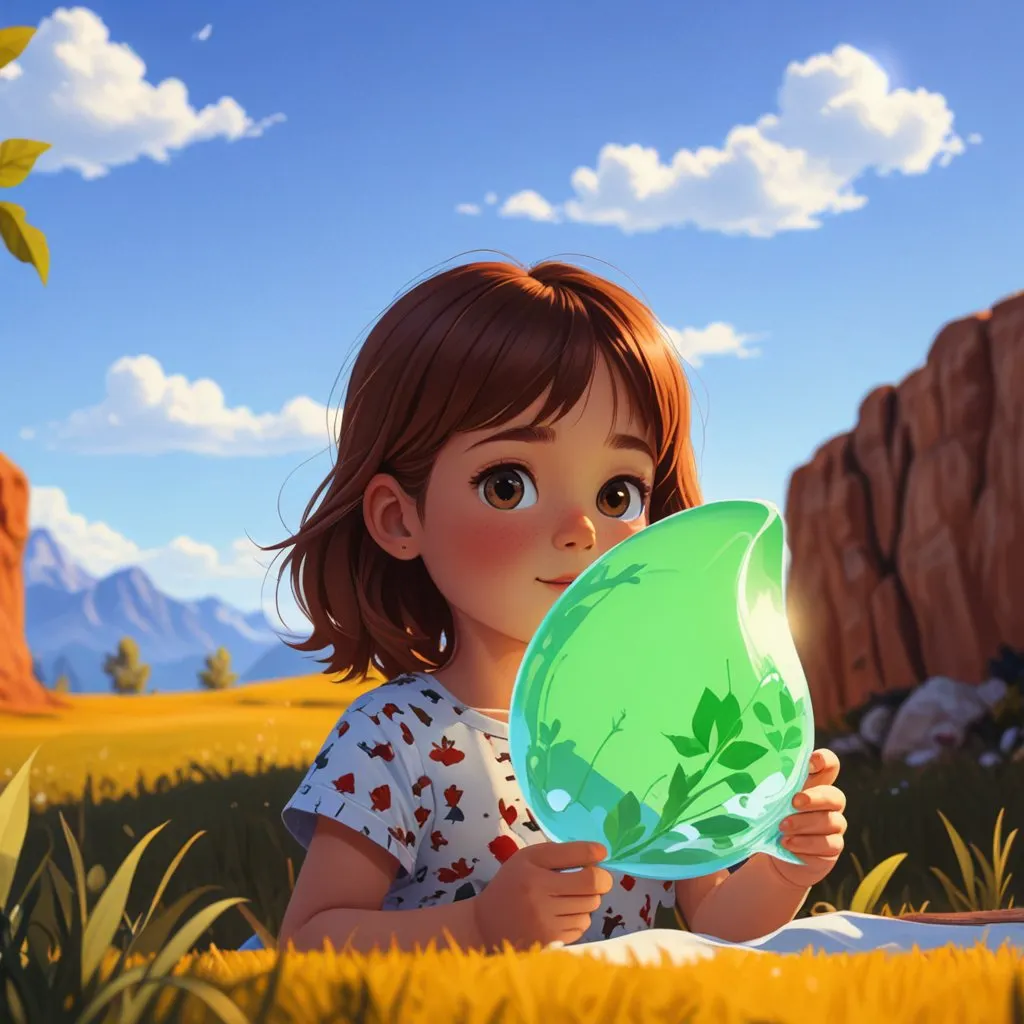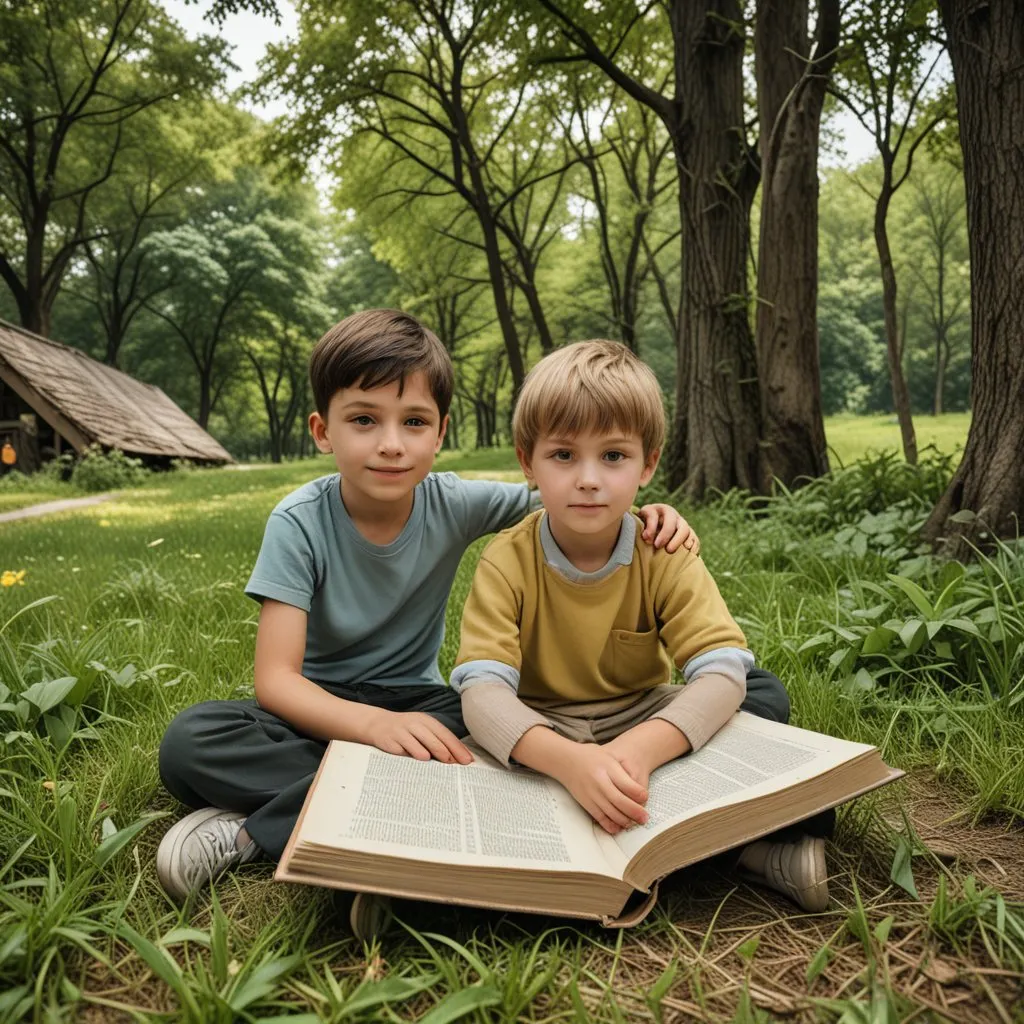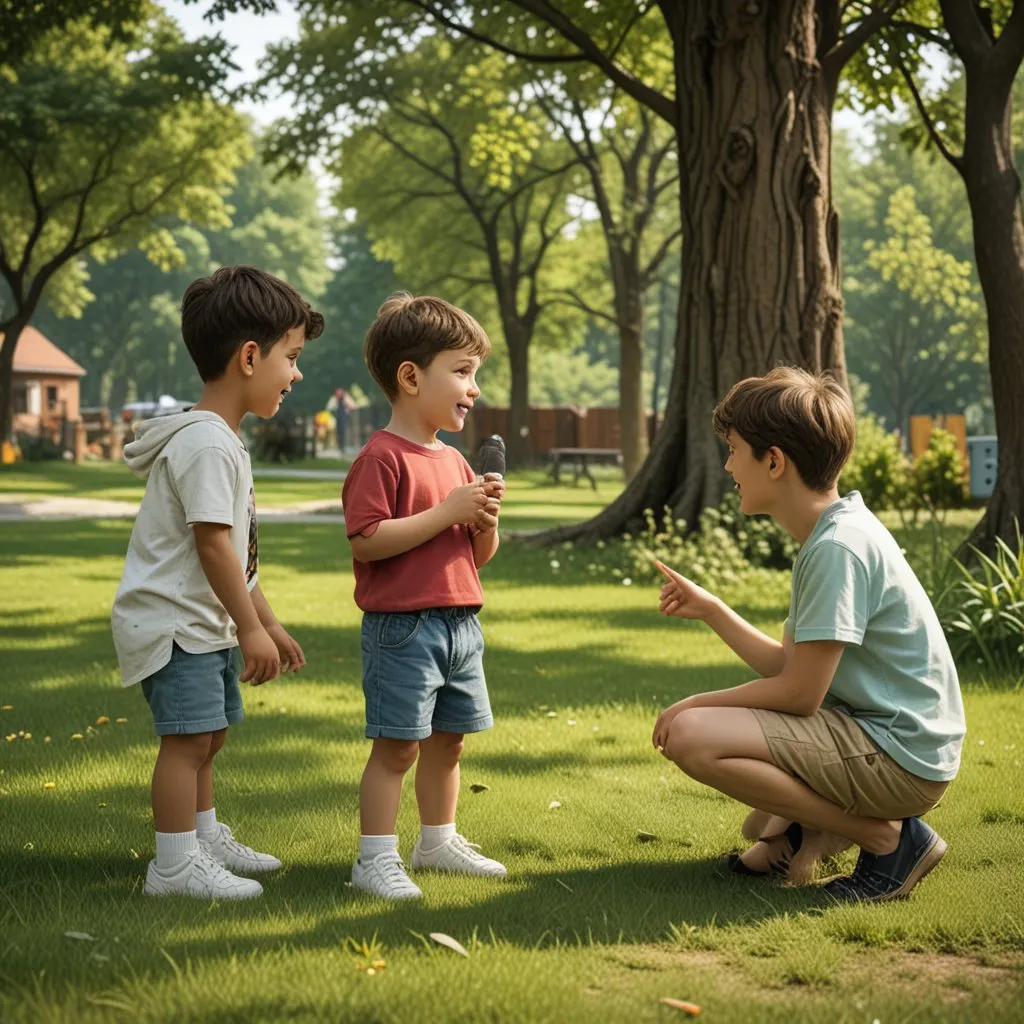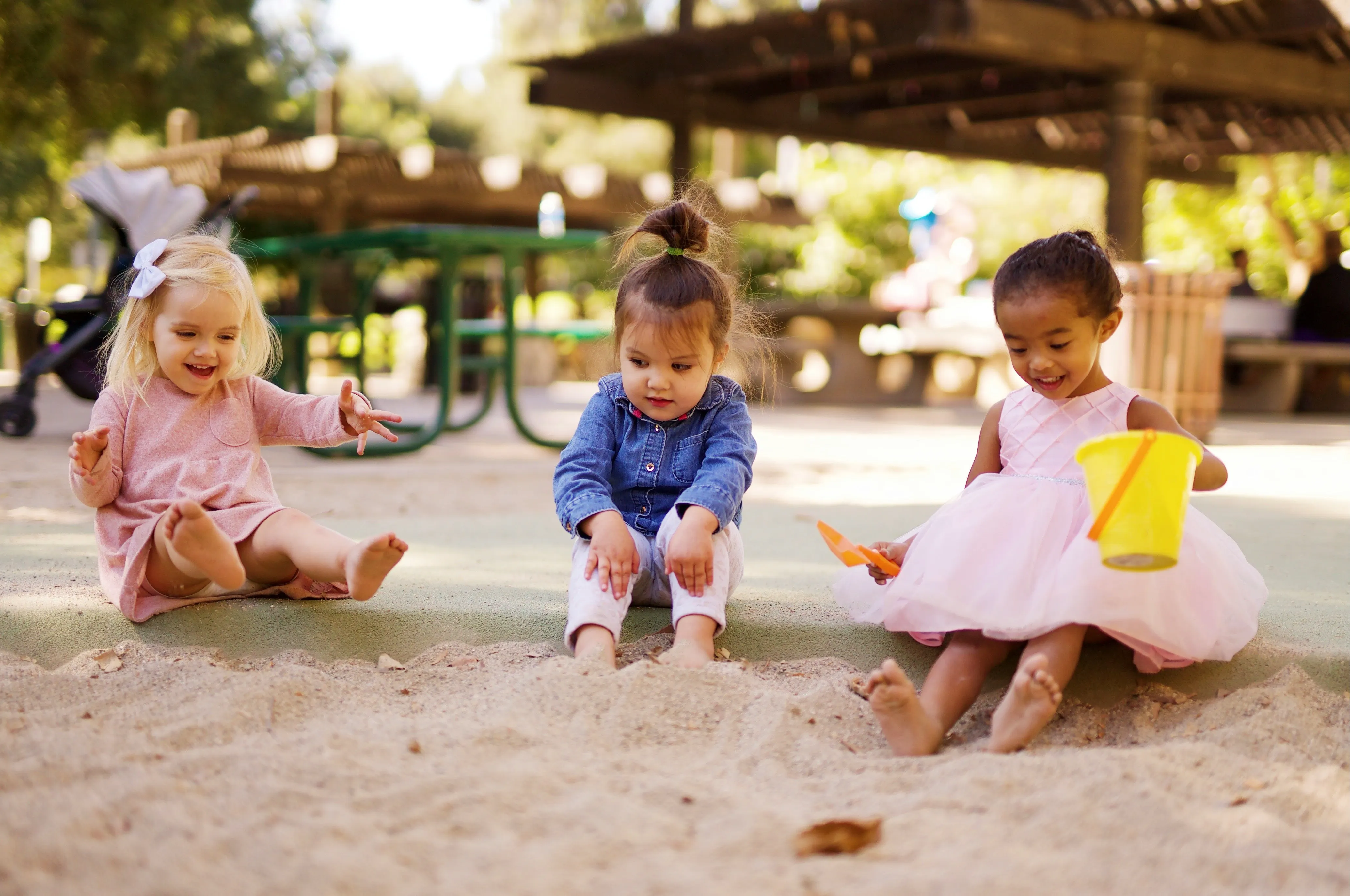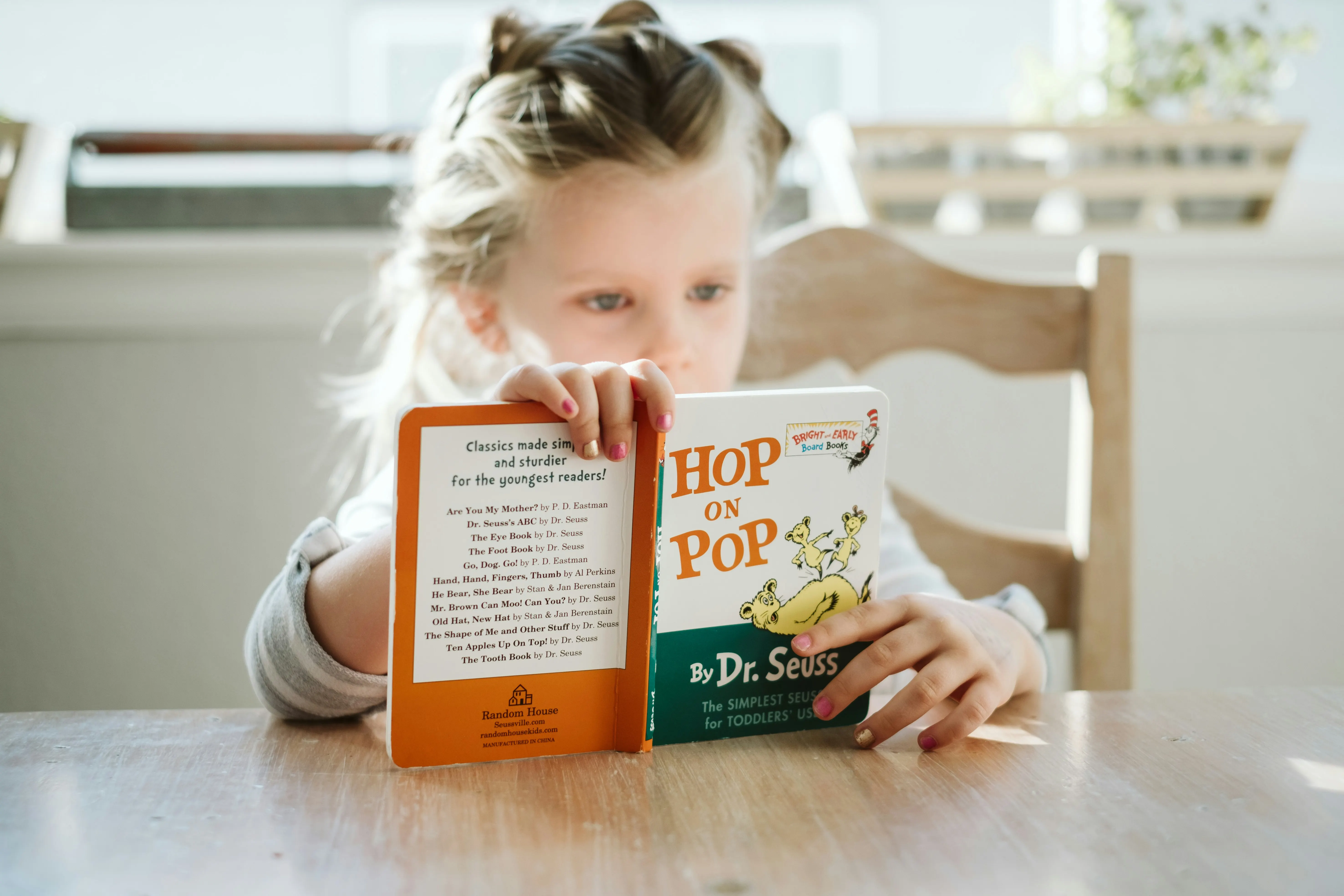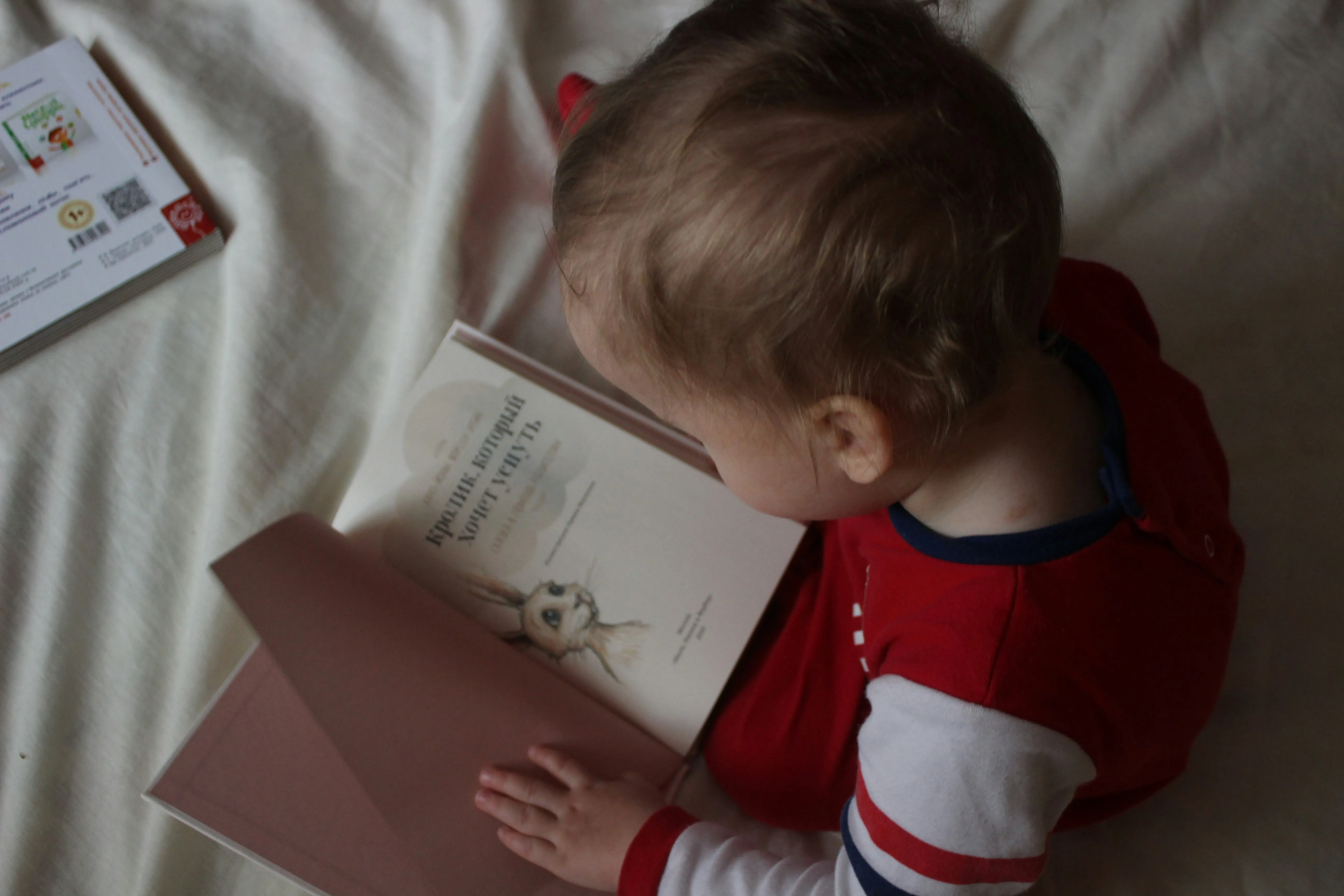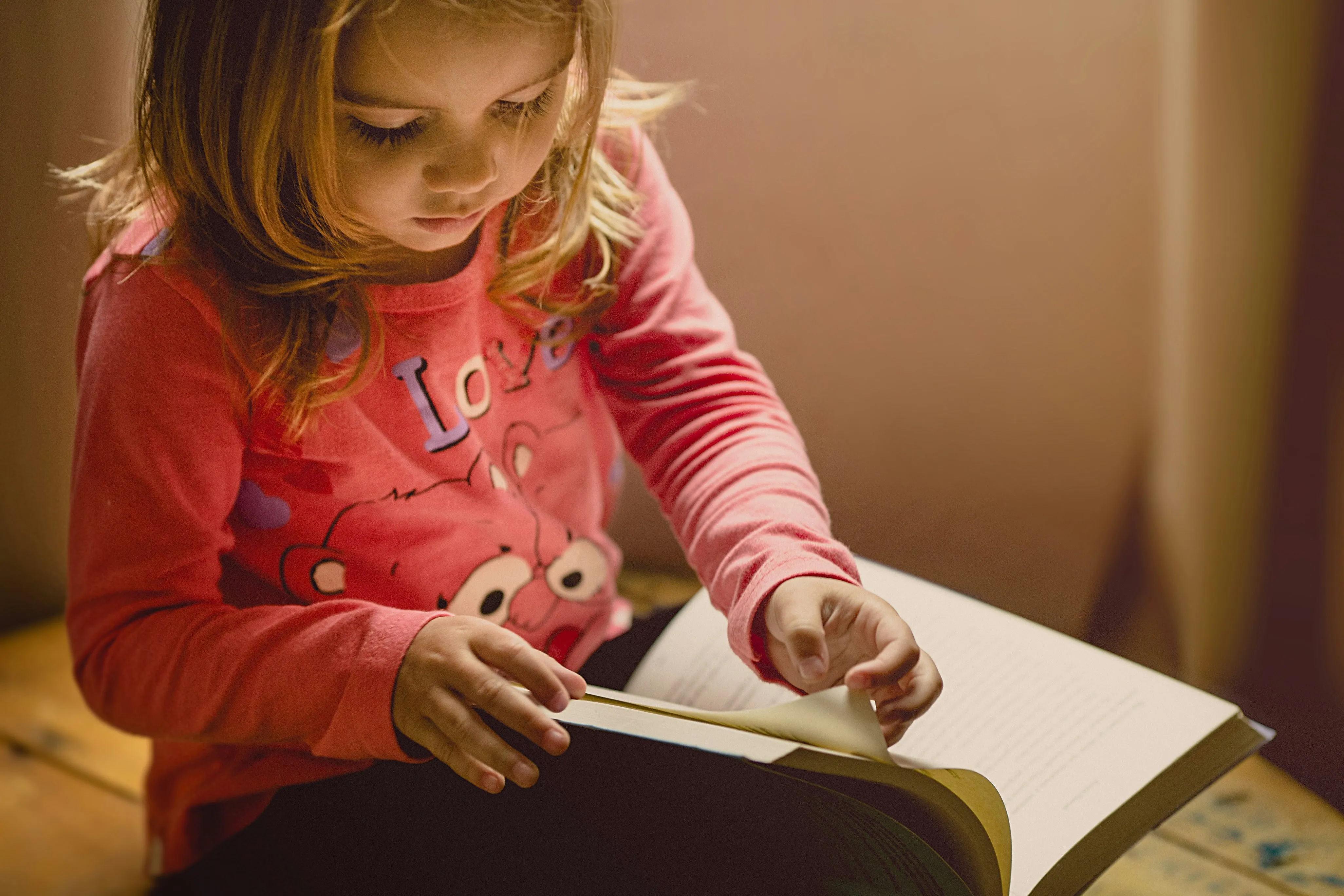Nurturing Curiosity in Early Childhood: Cognitive Growth
Fostering Curiosity during Early Childhood: Enhancing Cognitive Development
As a parent, you want to give your child the best start in life.
One way to do that is by nurturing their curiosity from an early age.
Curiosity is essential for cognitive growth and development in children. It instills a sense of wonder and empowers children to question everything around them.
In this blog we will explore:
- The importance of nurturing curiosity in early childhood, how it boosts cognitive growth, fosters empathy and open-mindedness, and develops a lifelong love for learning.
- We will also discuss strategies to enhance curiosity, including utilizing the 5 W's, open-ended questions, trial and error, paying attention to children's interests, and exploring new experiences.
- Additionally, we will delve into the role of AI-generated books and storytelling in nurturing curiosity.
- Finally, we will examine the connection between curiosity and cognitive development as well as the responsibility of educators and caregivers in fostering curiosity at home and in school.
Join us on this informative journey towards understanding how nurturing curiosity in early childhood contributes to future success.
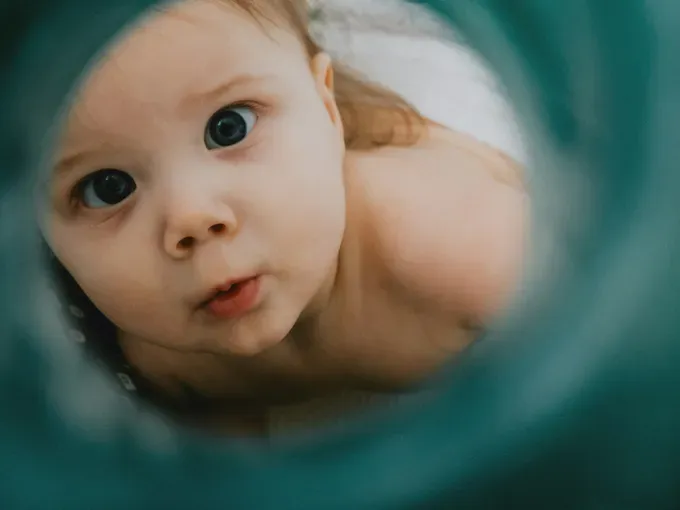
The Importance of Nurturing Curiosity in Early Childhood
Encouraging a child’s natural sense of curiosity supports cognitive growth, shaping their cognitive development. Nurturing curiosity from an early age can lead to a lifelong love for learning and creates a sense of eagerness for new experiences. Recent studies show that fostering curiosity in early childhood lays the foundation for a curious mind and a keen interest in the world around them.
How Curiosity Boosts Cognitive Growth

Stimulating cognitive development in early childhood and nurturing curiosity enhances cognitive growth. A child’s natural curiosity prompts cognitive development, supporting learning. Recent studies show that encouraging a curious mind fosters cognitive growth through unstructured play. Answering a child's questions and allowing free time for exploration fuels young minds' cognitive development.
The Role of Curiosity in Fostering Empathy and Open-mindedness
In early childhood development, nurturing curiosity contributes to fostering empathy and open-mindedness. Encouraging a curious mind supports the development of empathy, as children’s questions lead to understanding others' feelings. Nurturing curiosity in young minds also promotes open-mindedness, as it encourages exploring diverse perspectives and being receptive to new ideas.
Developing a Lifelong Love for Learning through Curiosity
Encouraging a child’s curious mind from an early age sets the stage for a lifelong passion for learning, paving the way for continuous cognitive growth. Nurturing children’s curiosity prompts a natural interest in answering questions and fosters a love for exploration. Recent studies show that nurturing a child’s natural curiosity in unstructured play and free time enhances their interest in learning.
Encouraging Curiosity: The Key to Lifelong Learning
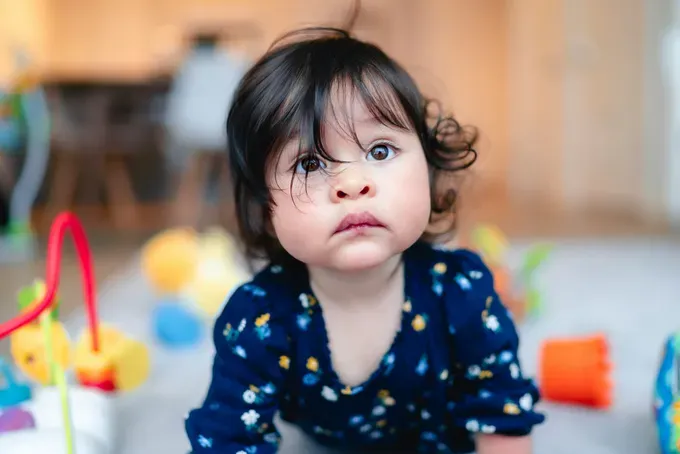
Encouraging a child’s natural curiosity from a young age is fundamental for instilling a love for lifelong learning. A recent study shows that nurturing curiosity in early childhood lays the foundation for a lifelong enthusiasm for learning. It's essential to nurture a curious mind as it holds the key to cultivating a love for lifelong learning.
Impact of Curiosity on Children's Learning Behaviour
Children's curiosity significantly shapes their learning behaviour and cognitive development, evident from early childhood. Nurturing this curiosity positively impacts their learning behaviours and fosters a curious mind for a lifelong love for learning. Children's questions and unstructured play are pivotal in answering complex questions and enhancing young minds. Recent studies highlight the profound impact of nurturing curiosity in early childhood on children's learning behaviours.
Strategies to Enhance Curiosity in Early Childhood
Utilizing the 5 W’s stimulates children’s curiosity and inquiry, fostering a curious mind. Open-ended questions are powerful in nurturing a child’s natural curiosity, encouraging them to ask simple questions and explore freely. Trial and error is crucial for preschoolers, allowing them unstructured play and time to answer questions that arise. Encouraging children’s questions and exploring their interests are key strategies for enhancing curiosity in preschool and early childhood.
Utilizing the 5 W’s to Stimulate Curiosity
Utilizing the 5 W’s (who, what, when, where, why) sparks inquiry and curiosity in young minds, encouraging critical thinking. These simple questions stimulate exploration and foster a curious mind, impacting cognitive growth positively. Recent studies have shown that answering children's questions using the 5 W’s nurtures their natural curiosity and encourages unstructured play, contributing to their overall development.
The Power of Open-Ended Questions in Nurturing Curiosity
In early childhood, open-ended questions play a vital role in stimulating curiosity and cognitive development. By encouraging the use of open-ended questions, educators can foster critical thinking and inquiry in young minds. Recent studies have shown that open-ended questions are instrumental in enhancing children’s natural curiosity and promoting exploration, ultimately contributing to their cognitive growth and learning behaviour.
Encouraging Trial and Error: A Step towards Fostering Curiosity
Encouraging young minds to embrace trial and error is pivotal in nurturing their natural curiosity and fostering a spirit of exploration. This approach lays the groundwork for early childhood learning, empowering children to ask questions, seek answers, and unlock their creative potential through unstructured play. Embracing trial and error as part of the learning process fosters curiosity, innovation, and problem-solving, shaping a curious and inquisitive mindset in preschoolers and toddlers.
Paying Attention to Children's Interests: A Route to Spark Curiosity
Observing children at play can unveil their innate curiosity, while caregivers who pay attention to their interests can foster and encourage this curiosity. Nurturing a child's interests is pivotal for early cognitive development and sustaining their inquisitive nature. Understanding and supporting a child’s hobbies are essential in nurturing and sparking their curiosity.
Exploring New Experiences to Cultivate Curiosity

Encouraging children to explore unfamiliar activities and environments fuels their curiosity, nurturing a curious mind. Exposing children to new experiences provides them with the opportunities to satisfy their inquisitive nature. Introducing new hobbies, such as exploring dinosaurs or engaging in unstructured play, can spark a child’s natural curiosity and contribute to cognitive growth.
The Role of AI-Generated Books and Storytelling in Nurturing Curiosity
AI-generated books and storytelling offer personalized, interactive experiences for children, aiding cognitive and language skills development through engaging content. Tailoring material to a child's learning style enhances curiosity and a love for learning while fostering creativity and imagination. However, balancing technology with real-life interactions is crucial for overall development.
The Power of AI-Generated Books in Curiosity Development
AI-generated books offer personalized and engaging content, adapting to each child's learning level and interests. This interactive approach fosters curiosity and love for learning, enhancing cognitive growth. They serve as valuable tools for educators and parents in supporting early childhood development, providing a tailored, stimulating experience for young minds.
Storytelling: A Tool to Engage Young Minds and Foster Curiosity
Storytelling in early childhood nurtures language and communication skills, fostering curiosity and critical thinking. It offers insights into different cultures, emotions, and perspectives, promoting active listening and attention span. Through storytelling, children learn important life lessons and values, encouraging a lifelong love for learning.
The Connection between Curiosity and Cognitive Development
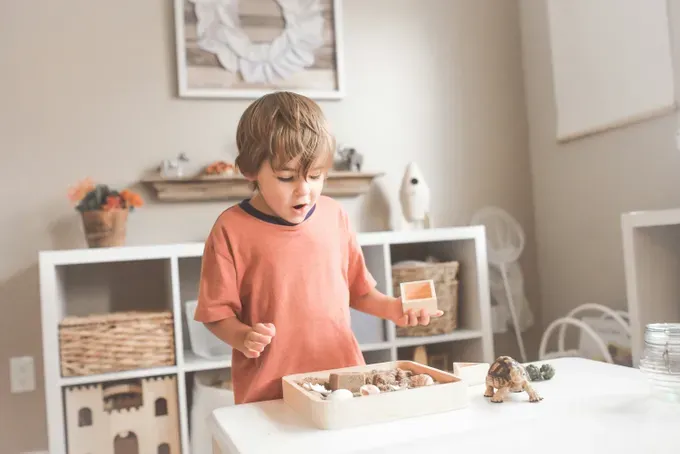
Encouraging a child’s natural curiosity through unstructured play and exploration is crucial for cognitive growth. It can lead to improved problem-solving, language development, and social skills. Parents and caregivers play a key role in fostering curiosity by providing stimulating experiences. Nurturing curiosity in early childhood sets the stage for a lifelong love of learning.
How Curiosity Shapes Cognitive Development
Curiosity propels exploration and discovery, forging new neural connections in the brain. Encouraging children to question and seek answers fosters critical thinking and a passion for learning. Curiosity cultivates problem-solving skills and perseverance, yielding long-term benefits such as enhanced academic achievement and career success. Parents and educators can nurture curiosity through hands-on exploration and fostering a curious mindset in a child's mind.
The Impact of Curiosity on Child Brain Development
Curiosity, a catalyst for cognitive growth in early childhood, nurtures problem-solving skills and creativity. It enhances memory retention, fosters a passion for learning, and sets the stage for future academic success. Parents and educators can foster curiosity through hands-on experiences, exploration, and open-ended questioning, shaping young minds for lifelong learning.
The Role of Educators and Caregivers in Nurturing Curiosity
Encouraging exploration and asking questions are key to nurturing a child’s curiosity. Celebrating mistakes creates a safe space for learning while providing resources and modelling curiosity spark a child’s natural curiosity. Educators and caregivers play a vital role in shaping young minds by fostering a curious mindset from an early age.
The Responsibility of Educators in Sparking Children's Curiosity
Educators play a crucial role in nurturing a child’s curious mind, which is essential for cognitive development. By encouraging hands-on and interactive learning experiences, educators foster exploration and experimentation, stimulating children’s curiosity. Incorporating open-ended questions and supporting children’s questions promotes their natural curiosity. Parents also have a vital role in nurturing curiosity at home and supporting their child's learning journey.
Caregivers as Catalysts: Encouraging Curiosity at Home
Encouraging a child’s natural curiosity at home is crucial for cognitive growth. Through unstructured play and exploration, children can develop a curious mind. Caregivers should encourage simple questions and provide opportunities for hands-on experimentation, nurturing children’s interests and passions. By supporting free time for exploration and discovery, caregivers act as catalysts for fostering a curious mind in young children.
How does Nurturing Curiosity in Early Childhood Contribute to Future Success?
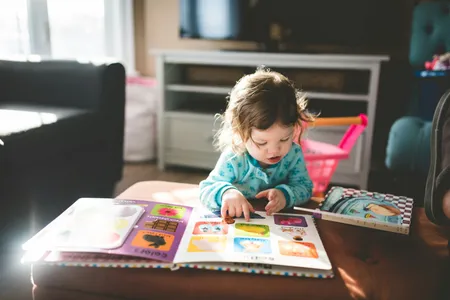
Nurturing curiosity in early childhood sets the foundation for a lifelong love of learning. Curious children ask questions, seek answers, and gain knowledge. This fosters critical thinking skills, problem-solving abilities, adaptability, and resilience - all crucial for future success in an ever-changing world.
Frequently Asked Questions
How do you nurture curiosity in learners?
Encouraging exploration and experimentation, asking open-ended questions, providing hands-on learning opportunities, and supporting learners' interests are key methods to nurture curiosity in learners.
Why is curiosity important in early childhood education?
Promoting cognitive growth and curiosity plays a vital role in early childhood education. It encourages children to ask questions, explore their surroundings, and seek new experiences. By fostering curiosity, we help develop critical thinking skills and instill a love for learning, setting the foundation for lifelong education.
Related Articles:
Beginner's Guide to Personal Learning Paths
The Journey of Early Childhood Development: A Guide for New Parents
Conclusion
In conclusion, nurturing curiosity in early childhood is crucial for cognitive growth and lifelong learning. Curiosity plays a significant role in boosting cognitive development, fostering empathy, and developing open-mindedness. Encouraging curiosity through strategies like asking open-ended questions, providing new experiences, and utilizing AI-generated books and storytelling can spark children's interest and enhance their learning behaviour.
Educators and caregivers have a vital responsibility to nurture curiosity by creating an engaging and stimulating environment. By fostering curiosity, we contribute to the future success of children, as it shapes their cognitive development and brain function.
We would love to hear your thoughts and experiences on nurturing curiosity in early childhood. Please comment below and share your insights on this important topic.
Citations
https://www.virtuallabschool.org/preschool/cognitive-development/lesson-5
https://eclkc.ohs.acf.hhs.gov/
https://www.naeyc.org/resources
https://raisingchildren.net.au/
https://childmind.org/article/
